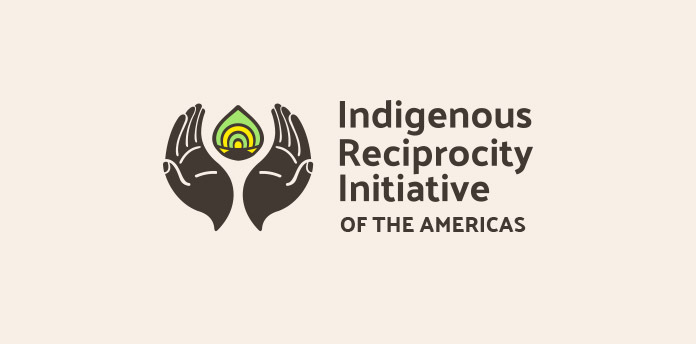- A New Supreme Court RFRA Ruling May Be a Boon to Psychedelic Religions - January 21, 2021
- Cannabis and Psychedelics: Vote and Change the Laws! - October 5, 2020
The conservative shift in the Supreme Court continues to have profound effects upon religious jurisprudence. For psychedelic religions in particular, the Supreme Court’s current body may prove more receptive than popular punditry may suggest. In December 2020, the Supreme Court issued a unanimous ruling in Tanzin v. Tanvir, 592 U.S. ___ (2020[CC1] )—8-0, Justice Amy Coney Barrett joined the Court too late to hear this case and did not participate—holding the Religious Freedom Restoration Act (RFRA) allows litigants to seek money damages when they are victims of religious persecution at the hands of government officials.

Join us at Sacred Plants in the Americas II
Tanzin involves three Muslim Americans suing the FBI for financial damages, following an incident where the FBI wanted the men to serve as confidential informants. The men refused, citing their Muslim faith. The men claim the FBI then retributively placed them on the national no-fly list. The FBI, relying upon Qualified Immunity, also later removed the men from the no-fly list, claiming their case was now moot. The Supreme Court, however, said “not so fast.”
Prior to Tanzin, there was a general belief that the Qualified Immunity doctrine shielded government officials from having to pay money to people they harm. Although the government and its agents can be sued, decades ago the Supreme Court confirmed that the Qualified Immunity Doctrine provides “government officials performing discretionary functions generally are shielded from liability for civil damages insofar as their conduct does not violate clearly established statutory or constitutional rights of which a reasonable person would have known” (Harlow v. Fitzgerald, 457 U.S. 800 [1982]). In other words, it was conventional belief that parties alleging religious persecution could not pursue money damages as part of their legal claims. However, it turns out such is not true of claims brought under RFRA, and Tanzin clarifies that plaintiffs have been permitted all along to pursue money damage claims under RFRA.
Tanzin relies upon literal verbiage of RFRA, which allows someone whose religious faith has been unlawfully burdened to “obtain appropriate relief against a government” (42 U.S.C. § 2000bb-1[c]). Because RFRA defines “government” to include an “official (or other person acting under color of law) of the United States,” the Supreme Court concluded that injured parties could sue government officials in their personal capacities (42 U.S.C. § 2000bb-2[1]).
Tanzin obviously has limitations. It applies only against federal officials and requires religious persecution or discrimination, allegation of RFRA violation, and allegation of damages. In the right context—which occasionally happens with psychedelic religions—Tanzin has actual application. Indeed, Tanzin gives a nod to one of the most significant psychedelic cases of the last half century, Employment Div., Dept. of Human Resources of Ore. v. Smith, 494 U.S. 872 (1990), wherein the Supreme Court unexpectedly did away with the government’s burden to prove it held a “compelling interest” that justified government intrusion upon religious practice. Justice Scalia’s opinion in Smith was so shocking that a broad national coalition of religious groups (who might not have come together under most other circumstances) joined to lobby Congress to undo the effects of Smith, leading to the creation of RFRA.

Discover Indigenous Reciprocity Iniciative of the Americas
The story of Smith is two Native American Oregonian drug and alcohol counselors had been fired and subsequently denied unemployment benefits for having ingested peyote as part of a religious ceremony at their Native American church. At the time, ingesting peyote was illegal in Oregon. The Supreme Court affirmed their employment termination and denial of benefits, holding that the Free Exercise Clause of the First Amendment does not prohibit governments from burdening religious practices through generally applicable laws. In so ruling, the Supreme Court rejected the interpretation of the Free Exercise Clause established in an earlier case, Sherbert v. Verner, 374 U. S. 398 (1963), and, in accord with earlier cases [see Smith, 494 U. S., at 879–880, 884–885], held that the Constitution does not require judges to engage in a case-by-case assessment of the religious burdens imposed by facially constitutional laws (see Smith, 494 U. S. 398 at 883–890). “Although states have the power to accommodate otherwise illegal acts done in pursuit of religious beliefs, they are not required to do so,” Justice Antonin Scalia wrote. (see Smith, 494 U. S. 398). Scalia cautioned that allowing someone to break a law because of a religious belief “would open the prospect of constitutionally required exemptions from civic obligations of almost every conceivable kind.”
In less than three years, the national pressure to undo Smith resulted in the introduction of RFRA in Congress. Passed in 1993, RFRA restores the burden back onto the government to prove its compelling interest in burdening religious practice. RFRA reads that the government shall not substantially burden a person’s exercise of religion even if the burden results from a rule of general applicability, unless it is in furtherance of a compelling governmental interest and is the least restrictive means of furthering that compelling governmental interest.
As Tanzin observes, Congress enacted RFRA to reinstate the protections and rights available prior to Smith, which included the “right to seek damages against Government employees.” The Supreme Court even goes so far as to acknowledge that sometimes a damages award is “the only form of relief that can remedy some RFRA violations,” such as wasted plane tickets in the Tanzin plaintiffs’ instance. Tanzin also remarks that Congress had a choice—if Congress had wanted to limit remedies for RFRA violations, such as to equitable relief only, it could have, but did not.
So far as psychedelics religions may be concerned, the main lesson of Tanzin is that RFRA gives all religions ability to pursue money damages against federal agencies and agents; but, there are additional lessons. Tanzin’s confirmation that RFRA permits money damages henceforth may force government agents and the agencies for whom they work to be more conscientious about being religiously atonal in their dealings with the public. Of course, they are supposed to be atonal, but fear of damages may make them work harder at it. Or another lesson may be that Tanzin may have an unintended reverse effect, as federal agents may relax standards in enforcing anti-discrimination laws, for fear of being accused of being discriminatory in the enforcement of anti-discrimination. Either way, it is hard to quarrel with a court ruling that says the government should justly compensate for the actual harm it causes when engaged in actual religious discrimination.
Tanzin should see various federal agencies, such as the DEA and Customs, being more careful in evaluation of religious exemption, particularly as pertaining to psychedelic religions. Genuine discriminatory behavior otherwise places the agencies and their agents at financial risk. For example, the ayahuasca churches, who continue their decades of wrestling for facile importation of their sacramental brew, are logical beneficiaries, as they can sue under RFRA for loss of the sacrament and any related personal harm. Lest anyone get too excited though, the federal government still generally remains immune from punitive damage awards (28 U.S. Code § 2674). But, psychedelic religions are able to bring claims for attorney’s fees, as a civil rights facet to their RFRA claims, “the court, in its discretion, may allow the prevailing party, other than the United States, a reasonable attorney’s fee as part of the costs, except that in any action brought against a judicial officer for an act or omission taken in such officer’s judicial capacity such officer shall not be held liable for any costs, including attorney’s fees, unless such action was clearly in excess of such officer’s jurisdiction” (42 U.S.C. § 1988).
Sign up to our Newsletter:
Tanzin is on a continuum that last revealed itself in 2014, with Burwell v. Hobby Lobby, 573 U.S. 682 (2014). Controversial though it may be, Hobby Lobby is emblematic of the Court’s stance on placing the burden on government to justify intrusion on religious practice. This suggests the current Supreme Court may be the most psychedelic-religious-friendly court to exist in decades. Although psychedelic religion cases are unicorns, a meaningful psychedelic religion case might reveal itself in the coming years. If it makes it so far, and if the right issue is present, an expanding recognition of psychedelic religious liberty may reveal itself through such a case. In the meantime, at the trial court level, Tanzin offers at least the promise that psychedelic religions that suffer discrimination at the hand of federal officials may have a further argument in their arsenals and a path to compensation.
Art by Mariom Luna.
Take a minute to browse our stock:
Did you enjoy reading this article?
Please support Chacruna's work by donating to us. We are an independent organization and we offer free education and advocacy for psychedelic plant medicines. We are a team of dedicated volunteers!
Can you help Chacruna advance cultural understanding around these substances?









